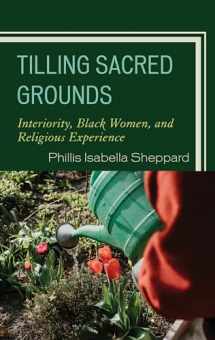
Tilling Sacred Grounds: Interiority, Black Women, and Religious Experience (Emerging Perspectives in Pastoral Theology and Care)
Book details
Summary
Description
Review
Drawing on the work of Audre Lorde, womanist scholar Phillis Sheppard offers a compelling theological analysis of Black women's interior lives and their contributions to public discourse. ― The Christian Century
Tilling Sacred Grounds: Interiority, Black Women, and Religious Experience courageously explores and articulates the complexities of Black religion, Black women’s spirituality, and sexuality, in private, communal, and public spaces. Phillis Sheppard beautifully engages a practical theology that draws with integrity on different disciplines and experience in crafting a scholarly work that is accessible and highly informative to any thoughtful reader.
-- Emmanuel Y. Lartey, Candler School of Theology, Emory University
Tilling Sacred Grounds demonstrates Sheppard’s ability to push beyond Christian boundaries and engage in a necessary dialogue with other faith traditions in her research. As such, she embodies what it means to move toward Alice Walker’s ideal of ‘wholeness of all the people.’ These interdisciplinary dialogues demonstrate her appreciation for the ‘fullness’ of God, and hence new perspectives on the meaning of freedom and salvation as liberation. Sheppard brings the sensibilities and methodology of a pastoral theologian yet again. She has clarified the relationship between pastoral theology and womanist thinking throughout her work at large. This newest work further represents a voice and perspective that enriches womanist theology for the future in ways that would not have been possible before Sheppard’s scholarship. I heartily recommend this volume. -- Linda E. Thomas, Lutheran School of Theology at Chicago
Sheppard’s work just gets better and better with every new book. In this volume, she continues bringing together her long experience and expertise in psychoanalytic self-psychology with the womanist project of centering Black women’s experience and a postcolonial commitment to liberation from monolithic western religious norms and constraints. She raises up the importance of Black women’s ‘interiority’ as space for religious and cultural complexity and rich source of Black women’s creativity. Tilling Sacred Grounds is a mature, interdisciplinary masterwork, and an exemplar of pastoral and practical theology that crosses academy, church, and society! -- Pamela Cooper-White
Tilling Sacred Grounds examines Black women’s interiority and negotiation of race, gender, and sexuality in religious spaces and religious practices. Phillis Isabella Sheppard argues for the importance of the exchange between interiority and public spaces, and examines religion in cyberspace, art, ritual, and street ministry. She refigures the location of religious experience by retrieving Black women’s interiority as religious space. Often excluded from Black religious studies, interiority is necessary for understanding Black women’s complex and even unconscious relationship with religion. The book weaves a thread by stressing that interiority has subjective, intersubjective, conscious, unconscious, and relational dimensions formed in historical, and social contexts.


We would LOVE it if you could help us and other readers by reviewing the book
Book review



